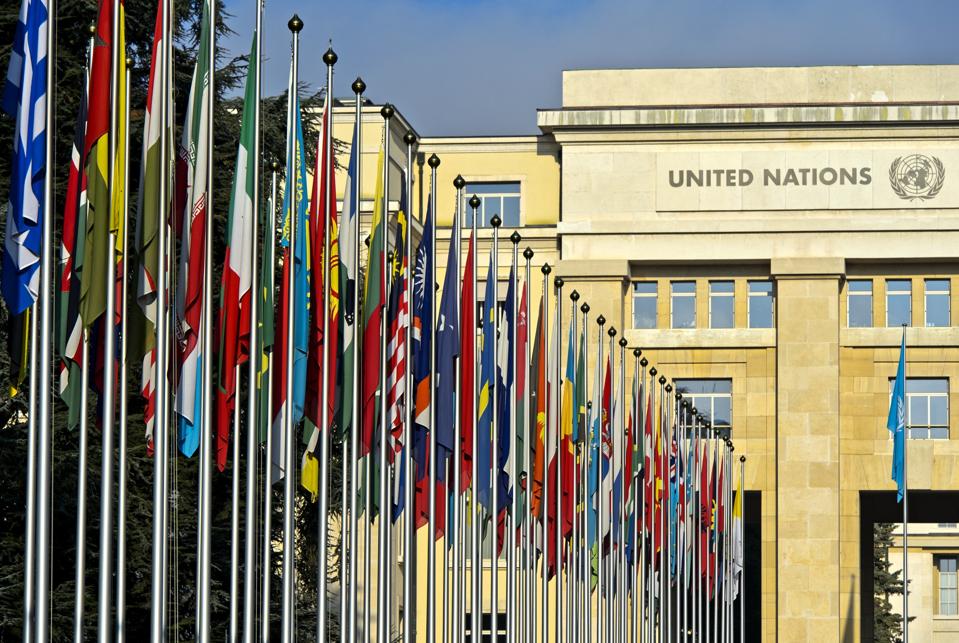For American companies to remain competitive abroad in an increasingly regulated market, the federal government needs to play an active role in international negotiations.
That’s why I was heartened to see key senior representatives from both the State Department and the Environmental Protection Agency at the Basel, Rotterdam and Stockholm Conventions (BRS) in Geneva earlier this month. Their presence signals an ongoing commitment to American companies’ interests. Without that kind of active engagement, decisions affecting billions of dollars in U.S. commerce would be made without our own input. As the U.S. Council for International Business representative at BRS, I witnessed how diplomatic and technical government support directly helped promote the economic interests of American companies.
Encouraging Signs of U.S. Leadership at BRS Conventions
The mission of the BRS Conventions, which gathered leaders from 182 countries, is to protect human health, safeguard the environment, and address climate change. They make decisions on hazardous chemicals and waste management, which directly impacts U.S. manufacturers, exporters, and global supply chains. These decisions also carry substantial implications for regulatory standards and industrial practices for major U.S. corporations across tech, chemical engineering, aerospace, and other sectors.
One of the most critical outcomes of the BRS Conventions was the global ban of three new persistent organic pollutants (POPs): chlorpyrifos, long-chain perfluorocarboxylic acids (LC-OFCAs), and medium-chain chlorinated paraffins (MCCPs).
Why does this matter? These substances are widely found in plastics and other materials used in industrial applications, particularly in aerospace and chemical manufacturing — both vital sectors of the U.S. economy. The aerospace manufacturing industry alone was valued at about $424 billion in 2023, with over 534,442 people employed in aerospace products and parts manufacturing, according to Deloitte.
Securing Critical Exemptions: A Win for U.S. Industry
Many of the American businesses at the conventions credited the U.S. government delegation for securing a new exemption at the Stockholm Convention allowing the use of a specific chemical – UV-328 – in water sealant tape and adhesives for the aircraft industry. There are no feasible alternatives to the chemical, which is uniquely effective in providing the durability, flexibility, and moisture resistance required for such products. Without the exemption, U.S. manufacturers would face supply chain disruptions, production slowdowns, increased costs, and potential market share losses to foreign competitors.
Similarly, the U.S. government played a key role at the Basel Convention in opposing a proposal that threatened to restrict the export of used components and materials intended for pollution abatement and recovery. U.S. tech companies depend on global recycling networks to reclaim valuable elements like rare earth minerals from electronics and to process their waste as cost effectively as possible.
The Risks of Not Having a Seat at the Table
In recent months, the U.S. government has stepped back from engagement with international organizations and treaties on environmental issues and did not send delegations to the 62nd Plenary Session of the Intergovernmental Panel on Climate Change (IPCC), the International Maritime Organization’s (IMO) 83rd Maritime Environment Protection Meeting, or the Petersberg Climate Summit.
But as companies and stakeholders await the outcome of President Trump’s Executive Order calling for a 180-day review of American involvement in international organizations and treaties, we can’t let our influence abroad diminish. We need to claim a seat at the table of negotiation efforts so that U.S. business’s interests are not sidelined or ignored.
For example, at the BRS conventions the U.S. was excluded from participating in the discussion on the exemption to decide whether to ban UV-328, the chemical used in airplane manufacturing, despite the potential ban’s implications for American manufacturers. But since the U.S. has not ratified the Stockholm Convention, and therefore holds only observer status, the exclusion was permissible. There are consequences when the U.S. lacks a formal seat at the table – namely, the government’s inability to oppose decisions that may be bad for our economy.
When the U.S. shows up and engages, American industry has a voice in shaping international decisions that affect its bottom line. From protecting critical aerospace materials to influencing the trajectory of global chemical regulations, U.S. participation in the BRS Conventions proved essential in defending economic interests and ensuring fair outcomes.
As global environmental governance continues to expand, American companies cannot afford for their government to be absent. A strong, consistent U.S. presence at the negotiating table is not just beneficial — it is necessary to safeguard innovation, competitiveness, and economic security in a rapidly evolving global marketplace.

